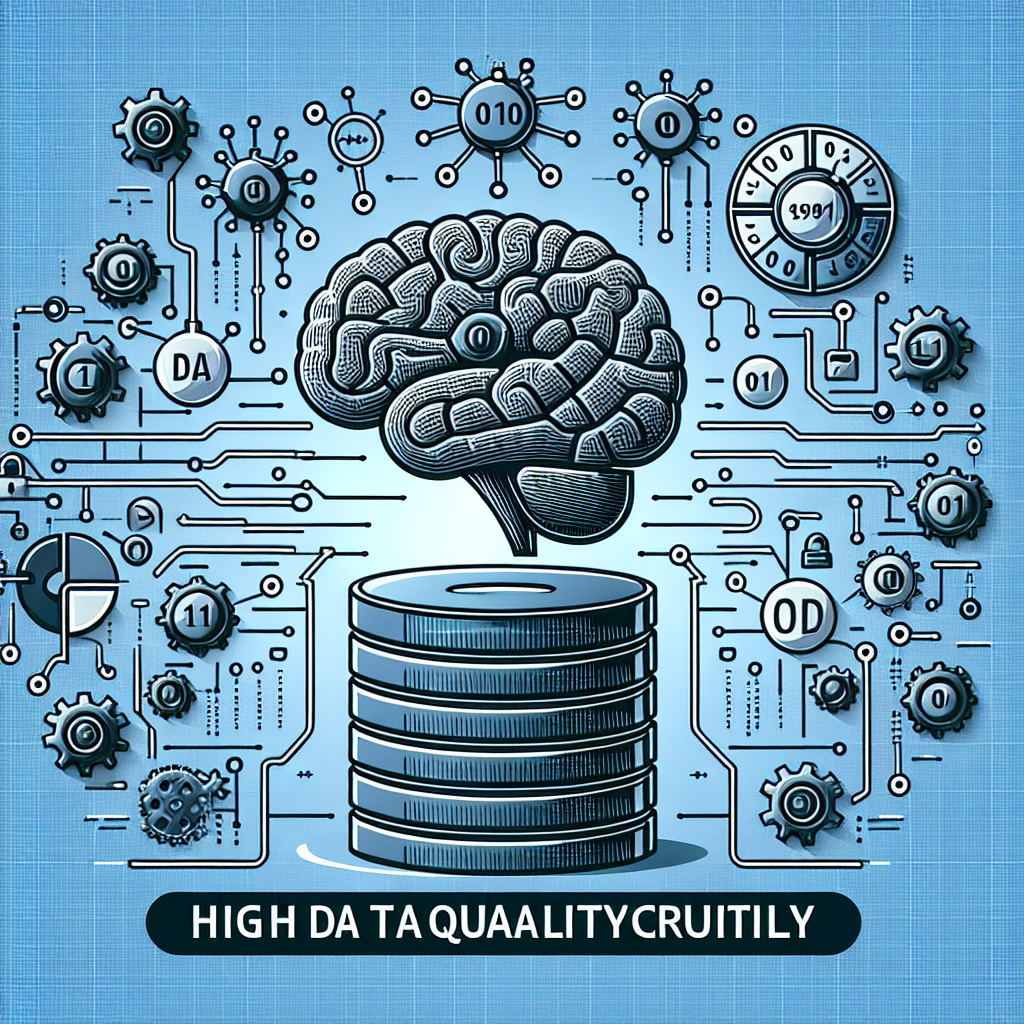In the age of artificial intelligence (AI), data has become the fuel that powers machine learning algorithms and drives innovation. The quality of data used in AI development plays a crucial role in determining the accuracy and effectiveness of AI systems. In this article, we will explore the importance of data quality in AI development and its impact on the performance and reliability of AI applications.
Why is Data Quality Important in AI Development?
Data quality is essential in AI development for several reasons. First and foremost, the accuracy of AI models depends on the quality of the data used to train them. If the training data is of poor quality, the AI system will make incorrect predictions and decisions, leading to unreliable results. Inaccurate data can also introduce bias into AI algorithms, which can have serious consequences, especially in applications such as healthcare and finance.
Secondly, data quality is crucial for ensuring the consistency and reliability of AI systems. Inconsistent or incomplete data can lead to errors and inconsistencies in AI predictions, undermining the trust and credibility of the system. High-quality data, on the other hand, enables AI models to make more accurate and reliable predictions, leading to better outcomes for users and businesses.
Moreover, data quality is essential for ensuring the scalability and performance of AI applications. Poor quality data can slow down the training and inference processes, making AI systems less efficient and effective. By using high-quality data, developers can improve the performance of AI models and enhance the user experience.
In addition, data quality is critical for compliance and regulatory reasons. In many industries, such as healthcare and finance, organizations are required to adhere to strict data quality standards to ensure the privacy and security of sensitive information. By using high-quality data, organizations can meet regulatory requirements and avoid potential legal and financial risks.
Overall, data quality is a fundamental aspect of AI development that impacts the accuracy, reliability, scalability, and compliance of AI systems. By investing in data quality, organizations can improve the performance and effectiveness of their AI applications and gain a competitive edge in the market.
How to Ensure Data Quality in AI Development?
Ensuring data quality in AI development requires a systematic approach that involves data collection, preprocessing, validation, and monitoring. Here are some best practices for ensuring data quality in AI development:
1. Data Collection: Start by collecting data from reliable and reputable sources. Make sure the data is relevant, accurate, and up-to-date. Consider using data quality tools and techniques, such as data profiling and data cleansing, to identify and correct errors in the data.
2. Data Preprocessing: Clean and preprocess the data before using it to train AI models. This involves removing duplicates, missing values, and outliers, as well as standardizing and normalizing the data. Use data transformation techniques, such as feature engineering and dimensionality reduction, to improve the quality of the data.
3. Data Validation: Validate the data to ensure its accuracy, completeness, and consistency. Use data quality metrics, such as precision, recall, and F1 score, to evaluate the quality of the data. Consider using data validation tools, such as data quality monitoring platforms, to automate the validation process and identify data quality issues in real-time.
4. Data Monitoring: Monitor the quality of the data throughout the AI development lifecycle. Implement data quality monitoring tools and techniques, such as data profiling and data lineage analysis, to track changes in the data and detect anomalies and inconsistencies. Regularly review and update the data quality standards to ensure the data meets the required quality criteria.
By following these best practices, organizations can ensure the quality of the data used in AI development and improve the accuracy, reliability, and performance of their AI applications.
FAQs
Q: What are the consequences of using poor quality data in AI development?
A: Using poor quality data in AI development can lead to inaccurate predictions, biased decisions, inconsistent results, and unreliable performance of AI systems. It can also undermine the trust and credibility of the system and increase the risk of legal and financial liabilities.
Q: How can organizations improve data quality in AI development?
A: Organizations can improve data quality in AI development by collecting data from reliable sources, preprocessing and cleansing the data, validating the data, and monitoring the quality of the data throughout the AI development lifecycle. By following best practices for data quality, organizations can ensure the accuracy, reliability, and performance of their AI applications.
Q: What are some data quality tools and techniques that can be used in AI development?
A: Some data quality tools and techniques that can be used in AI development include data profiling, data cleansing, data validation, data transformation, data monitoring, and data lineage analysis. These tools and techniques help organizations identify and correct errors in the data, validate the quality of the data, and monitor changes in the data to ensure its accuracy and consistency.
In conclusion, data quality is a critical factor in AI development that impacts the accuracy, reliability, scalability, and compliance of AI systems. By investing in data quality, organizations can improve the performance and effectiveness of their AI applications and gain a competitive edge in the market. By following best practices for data quality, organizations can ensure the accuracy, reliability, and performance of their AI systems and deliver better outcomes for users and businesses.

